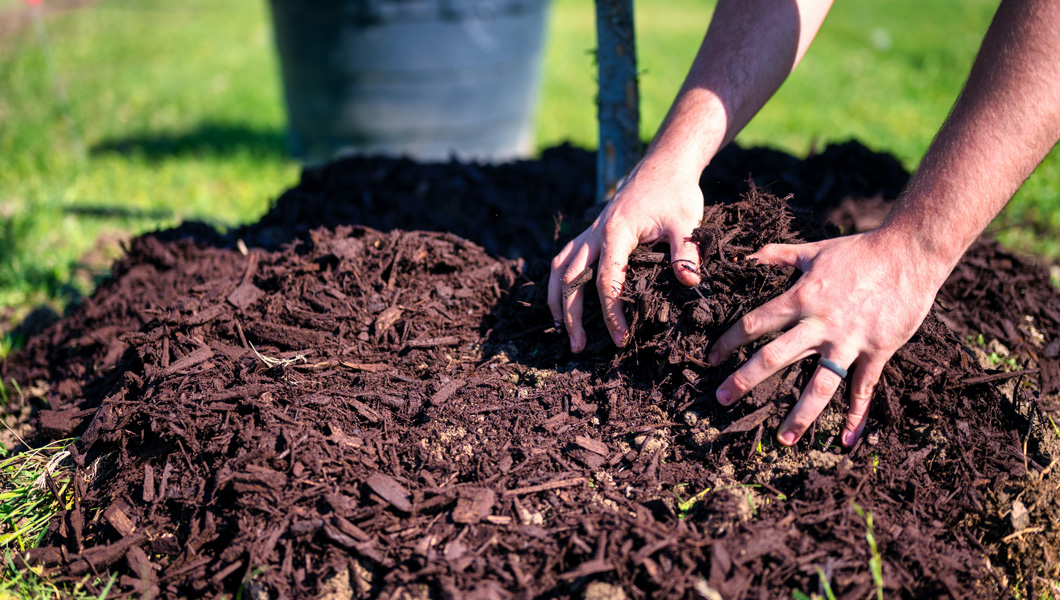
Category: Tips
The Merits of Mulching
Besides making a landscape look manicured, mulch applied correctly offers many benefits. It works to improve soil conditions and helps soil maintain moisture by decreasing water loss. It also keeps weeds at bay and minimizes their competition for water and nutrients. It provides insulation for soil, keeping it warmer in the winter and cooler in the summer. It protects tree trunks and plants from string trimmer and mower damage, and reduces soil compaction as it diverts foot and vehicle traffic.
For well-drained sites, you will typically apply a layer of mulch 2 to 4 inches wide. When selecting a type of mulch, you’ll choose from mulches in two categories. Inorganic mulches include stone, lava rock, pulverized rubber, geo-textile fabrics and other materials that don’t easily decompose. Organic mulches, on the other hand, will decompose more readily and include wood chips, pine needles, leaves, cocoa hulls, softwood and hardwood barks, etc. The benefit of inorganic mulches is that they don’t often need to be replaced; however, they do nothing to improve the soil structure, either. Organic mulches provide nutrients and improve soil quality and fertility.
Done properly, applying mulch around landscape ornamentals can be one of the best things you do for them. Mulching mistakes, by contrast, can stress and even kill plants. So it’s critical to familiarize yourself with mulching basics, as well as what kind of soil you’re working with.
Over mulching is the most common mulching mistake perpetuated by a “monkey-see, monkey-do” mentality. In short, we’ve seen so many examples of mulch piled up high on tree trunks that some associate it with the correct way to mulch. This could not be further from the truth. Mulching too deep or close to trees and plants can lead to mulch volcanoes that attract rodents, and plant injury or death in a number of ways:
- Root suffocation. Roots need to breathe. Without acceptable levels of oxygen, roots begin to decline and will eventually die.
- Dehydration. If you pile on the mulch too thick, you prohibit the penetration of water and dehydrate roots. In the case where water actually does make it through the mulch and to the soil, you then risk preventing natural evaporation, which will result in perpetually soggy soil and will eventually lead to root rot.
- Vertebrate pests. Thick mulch volcanoes provide a nice habitat for rodents who will feast on the inner bark of trees and cause girdling.
- Excessive heat. You know that heat is associated with composting? If your mulch is thick enough, that same process will occur. In fact, temperatures can reach 120º to 140º degrees Fahrenheit as decay occurs in the thick piles.